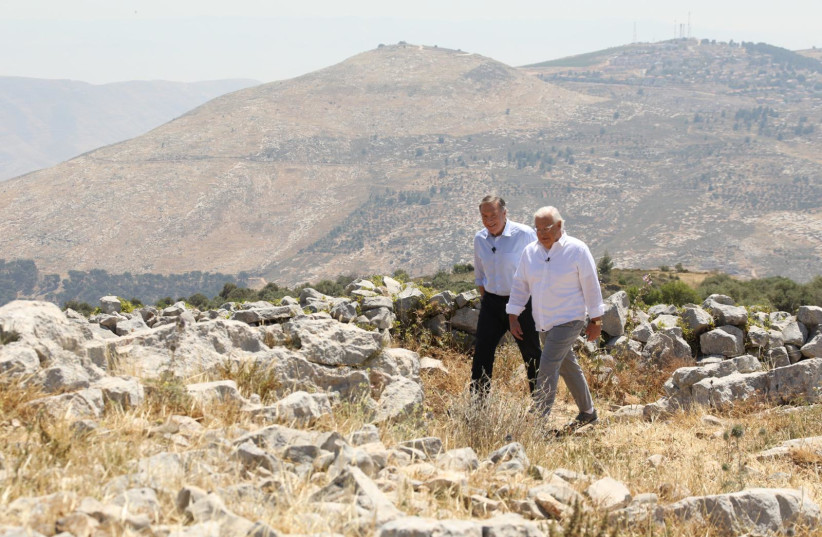It could be “impossible” to establish a Saudi Arabia-Israel peace deal if a prerequisite is the Palestinians receiving or accepting a Palestinian state, according to former US secretary of state Mike Pompeo.
Pompeo helped orchestrate the Abraham Accords under former US president Donald Trump, which normalized relations between Israel and the United Arab Emirates, Morocco, and Bahrain. But he told The Jerusalem Post on Wednesday that “it is impossible to imagine a two-state solution with the current Palestinian leadership who is underwriting terrorism, taking money from Iran, paying citizens to kill Israelis.
“It is very difficult to imagine how one would strike a deal with the very leaders that have rejected every reasonable offer with which they have been presented.”
Pompeo spoke to the Post the day after Saudi Arabia’s first ambassador to the Palestinian Authority, Nayef al-Sudairi, visited Ramallah. During his visit, al-Sudairi emphasized that creating a Palestinian state with east Jerusalem as its capital would be a fundamental cornerstone in any prospective agreement with Israel.

“The Arab Peace Initiative is the central point of any upcoming agreement,” al-Sudairi said.
Peace initiatives in the Middle East
Saudi Arabi’s Arab Peace Initiative was initially ratified by the Arab League in 2002 and subsequently reaffirmed in 2007 and 2017. It requires a complete withdrawal of Israel from the West Bank and Golan Heights, establishing a Palestinian state with eastern Jerusalem as its capital, and a “just settlement” of the Palestinian refugee crisis.
In speaking about normalization with Saudi Arabia at the United Nations General Assembly last week, Prime Minister Benjamin Netanyahu said, “We must not give the Palestinians a veto over new peace treaties with Arab states. The Palestinians could greatly benefit from a broader peace. They should be part of the process, but they should not have a veto over the process.”
Similarly, in an interview with Fox News, Saudi Crown Prince Mohammed bin Salman did not mention a Palestinian state but only said that “the Palestinian issue is very important. We need to solve that part.”
He said, “We got to see where we go. We hope that we will reach a place that will ease the life of the Palestinians and get Israel as a player in the Middle East.”
Pompeo said every American president would support a normalization agreement – Democratic or Republican. He said it is in America’s interest to have security relations between the United States and Saudi Arabia and between Israel and Saudi Arabia. However, he said peace would “be more easily attainable with a Republican president, meaning one that understands the greatest threat to peace in the region is Iran.”
He explained that the Abraham Accords advanced due to the Trump administration’s acknowledgment of Israel as America’s primary democratic ally in the region while identifying Iran as the leading state sponsor of terrorism and a significant threat to all other countries.
“When we isolate Iran, the region becomes more peaceful and prosperous,” Pompeo said.
